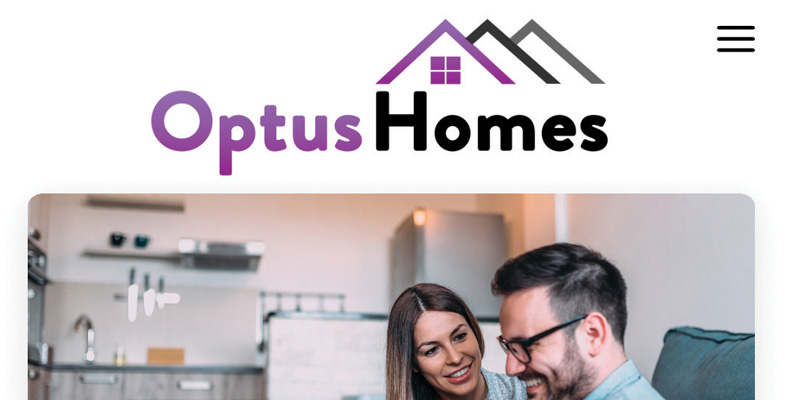Two of the most-discussed trends in social housing IT over the past few years have been:
- The migration of systems from on-premise to the cloud;
- Mobile-first approaches to tenant communications.
More housing providers are asking whether it’s possible to scale their migration to the cloud, and to start with front-end services while back-end services remain on-premise for the time being.
Migrating to the cloud is rightly regarded as a major step, requiring considerable planning and a mindset change throughout an entire organisation. It’s often viewed as a ‘big bang’ event, where the switch to cloud computing might be implemented for all or most of an organisation’s existing on-premise services simultaneously. But does it have to be that way?
And for a mobile-first approach, early attempts were often simply web portals wrapped up as apps that failed to deliver the functionality and intuitive use demanded by end-users. But can a genuine mobile-first approach be the first step in migrating to the cloud? Some landlords are implementing powerful mobile apps which deliver the benefits of cloud computing for front-end services, but also offer full integration to their existing on-premise housing management systems, alleviating the need for an expensive and risky ‘big bang’ transition.
The mobile has won
There’s no doubt that the mobile has won the battle as the most popular consumer device for information and entertainment access, communication and general web usage. Statista estimate that there will be over 200 billion app downloads globally in 2020. In the UK, smartphone penetration exceeds 85 per cent for the entire population and average smartphone usage now exceeds 2.5 hours per day. Not only is the mobile now the dominant device, in the UK only 17 per cent of smartphone online access is directly to websites, while 83 per cent is via apps.
Consumers have become accustomed to using well-designed apps with intuitive menus which put key features within easy reach. The smartphone gives consumers 24/7 access and good quality apps make access easier. Now consumers are demanding that such access is available for as many services as possible.
The power is in the cloud
Cloud platforms such as Microsoft Azure, Google Cloud Platform and Amazon Web Services have been game changers in the way that they facilitate ubiquitous computing power for many market sectors.
Standard modules such as storage, processing and analytics are available on ‘platform as a service’ (PaaS) contracts and offer disruptive commercial models. And more advanced modules such as Cognitive Services and Chatbot Engines open new possibilities for consumer-centric applications. Machine learning capabilities will constantly improve the systems’ performance and gradually provide a better and better service for both organisations and consumers. It’s little wonder that housing providers have already started the migration away from legacy on-premise systems to the more powerful and cost effective cloud alternatives. But while the rewards can be significant, the transition can be daunting.
Front-end migration
For some, the answer to this dilemma is to put the tenant at the heart of their business and initially migrate only front-end services, such as tenant account management, to the cloud with a well-designed mobile app. If it’s integrated to a platform such as Azure, the app offers a great combination of user convenience and ever-increasing cloud computing power. And via the cloud, the app is also fully integrated to existing on-premise systems, meaning that there’s no need for the immediate migration of back-end services. Tenant management apps of varying capability are readily available from many IT suppliers, eliminating the need for development programmes, and PaaS contracts mean that costs aren’t prohibitive. Many of these apps can be a genuine enabler and the first step in a gradual migration to the cloud.
But what functionality might be incorporated into a specialist and advanced tenant app with cloud integration? In the social housing sector, the average cost per call-centre interaction is approximately £5, and landlords consistently say that repairs and appointments form the largest reason for such calls. So, a repairs module, along with rent payments and account queries should be the absolute minimum requirements for a self-serve app. But consider what additional community-centric functionality could be added:
- Cognitive computing to allow voice-to-text recognition for form filling;
- Automatic language translation for non-native English speakers;
- Open Banking services which would allow tenants, at the click of a button, to submit three months’ bank statement in support of a rental application;
- And a two-way texting service to allow groups of tenants to communicate with one voice to their landlord, and the landlord to reply to that group with a single push response.
The feature list could continue to grow as the app harnesses more cloud computing capability, together with its integration to existing management systems, possibly even becoming a new revenue stream for landlords:
- Tenant feedback and reviews on any/all home visits for repairs;
- Tenant welcome packs for new build homes;
- In-app messaging or advertising;
- Supply of third-party services;
- Instant capture of abundant ‘Uber-style’ data, generating actionable insights and process efficiencies.
Tenants will judge us
Some housing providers have been disappointed with their conversion rates from traditional services to web portals. But web portals are typically designed for laptop use and the residential penetration of laptops in the UK has been falling since 2015 (65 per cent and decreasing). And when used on a mobile, portals can be frustrating and simply fail to offer what consumers expect in a modern and intuitive mobile environment.
In contrast, well-designed apps are built to be intuitive and minimise clicks for easy access to key tasks while delivering both personal and community benefits. It’s what’s expected in today’s app ecosystem and it’s what tenants will demand before very long. As the housing sector continues to change, tenants will use customer service as an area of judgement and the government will place more focus on value for money. Is 2020 therefore a year of change?
Gerry Kelly is the CEO of Optus Homes.


